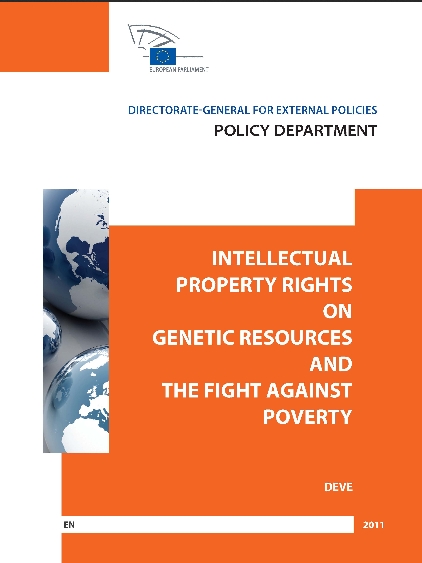Developing countries are the main providers of genetic resources and traditional knowledge. Conversely, most intellectual property rights (IPRs) on seeds and medicines are concentrated in developed countries. This has some disadvantages for developing countries. Thus, patents on seed or pharmaceutical products sometimes make the access to such products for the poor more difficult and expensive; there are hardly any positive effects of IPRs on fighting poverty by contrast. This is the result of a study for the European Parliament that Ecologic Institute helped to write. The study and a related presentation are available for download.
IPR have long been a bone of contention between developed and developing countries. This is particularly true for IPR on genetic resources, e.g. patents on substances produced from traditional medicinal plants or plant variety protection for crops. The reason behind this controversy is that most of today’s agricultural and other biodiversity is found in developing countries where local and indigenous communities often hold detailed knowledge about the use of these genetic resources. By contrast, research institutions and private companies using the genetic resources and developing and commercializing products derived from them are mostly based in developed countries. Linked to this, governments of developed countries – which mostly have advanced IPR systems in place – have pushed developing countries to adopt more stringent IPR legislation over the past two decades.
The impact of IPRs on developing countries is contested. Pharmaceutical and agricultural companies and the governments of some developed countries argue that stronger IPR will lead to higher R&D investment and provide incentives for research. More research and products resulting from it are, in turn, expected to be beneficial for societies in developed and developing countries alike. By contrast, developing countries’ governments along with small farmers’ associations and indigenous organizations maintain that IPR exclude those from the benefits of research that have provided the most significant input in the form of genetic resources and associated knowledge. They argue that the poor in developing countries cannot afford to pay high prices for IPR protected products, and IPR thus undermine food security and public health in developing countries.
The study investigates the merit of these arguments, with a particular emphasis on the health and agricultural sector. It also looks at the existing international legal framework, including the recent Nagoya Protocol on Access and Benefit-sharing and options for its implementation at the EU level. The Ecologic Institute contributes parts on the impact of IPR in the agricultural sector as well as cases studies on South Africa, Brazil and India.
On 24 January 2012, Sebastian Oberthür, Institute for European Studies, and Christiane Gerstetter, Ecologic Institute, presented the study in the European Parliament. On behalf of the Development Committee, Member of Parliament Catherine Grèze welcomed the results of the study.
The study and the presentation are available for download.



